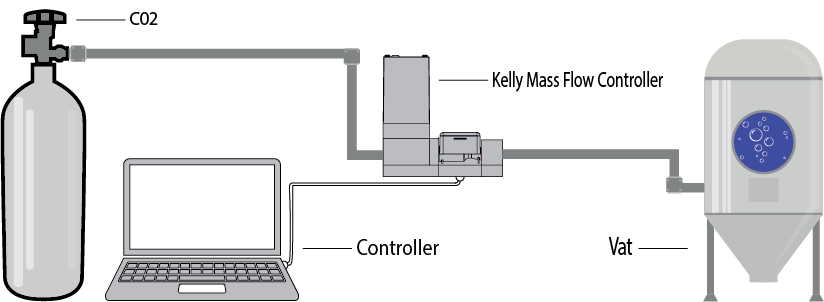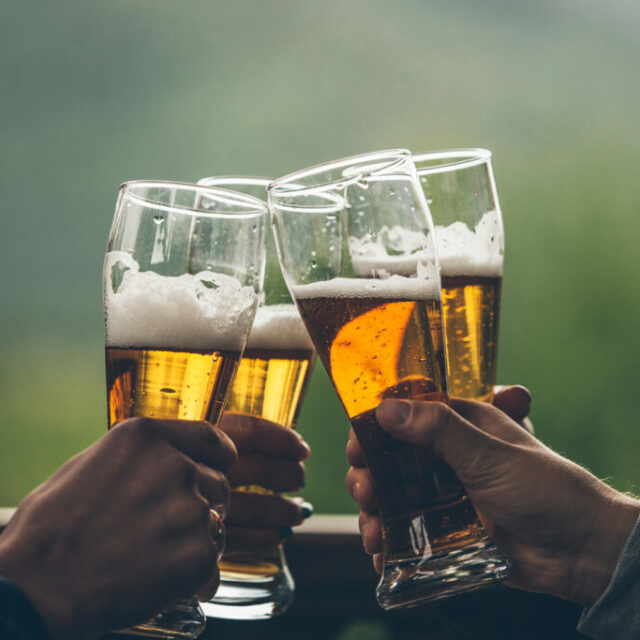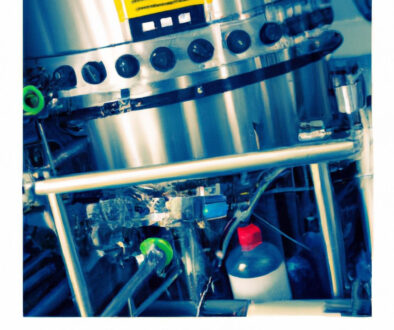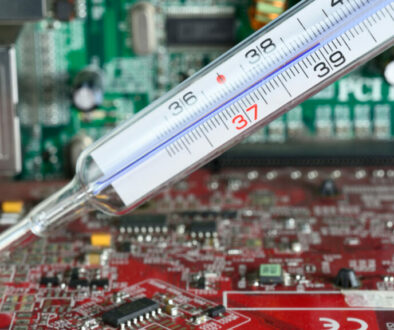How Mass Flow Controllers Are Used In The Creation Of Carbonated Drinks, Beer and Wine
Perfecting carbonated beverages
Are you trying to create a carbonated beverage? Maybe it tastes flat due to the CO2 processes? Utilizing a mass flow controller allows for precision manipulation of CO2 injection within the alcoholic beverage industry and soft drinks carbonation.
The amount of carbon dioxide that is injected into carbonated beverages during the bottling process must be accurately specified by manufacturers in order to ensure the quality of carbonated beverages. The mass flow controllers, utilized by filling and capping fulfillment centers, ensure the quantity of CO2 injected into the bottles during the filling and bottle process. This quality control of the product.
Generating too much CO2 can lead to over-carbonating. This can lead to a loss of product and possibly even damage to the bottle. CO2 injections that do not attain equilibrium result in a flat beverage. Either way, the batch must be tossed out, leading to loss of revenue that could potentially effect profits and costs resulting in a lot of money lost.
Volumetric flow and differential pressure controllers regulate the injection of CO2 in the carbonated beverage production process. When volumetric flowmeters are a viable option for this application, they are not an appropriate option because of the wide range of mass flow requirements encountered during the initial phases and during periods of lower production.
Production of C02 in Beer
A common type of carbonation involves the rinsing of the mash grain bed to extract as much sugar from the grain as possible, which creates C02 into the bottom of a tank with the beer. Since a cold beer will yield more CO2, the temperature may be changed in the tank to regulate temperature.
In a tank of liquid CO2, the amount of carbon dioxide that can dissolve in the liquid is directly proportional to the partial pressure of the supply CO2.
The pressure differential will also enable the brewery to sparge carbon dioxide at the bottom of the tank, where the CO2 will be forced through a porous stone as it passes through. The small size of tiny bubbles ensures that many surface areas remain in contact with the beer, increasing the rate of CO2 dissolution.
Mass flow controllers for beer production.
C02 in the tank can be controlled using mass flow controllers, because they can either control the pressure or the flow rate of CO2 to the carbonation stone. It is traditional for carbonation to be regulated by pressure. In order for the beer to attain equilibrium, the headspace pressure in the tank should equal the pressure delivered to the carbonation stone. The carbonation phase has now been completed.
It may seem unorthodox because you are controlling mass flow rate rather than pressure, but it offers the advantage of telling you exactly how much volume or mass of CO2 has entered the tank. The mass flow, in contrast, is not affected by temperature fluctuations, making it a more accurate way to measure carbonation.

The Kelly Pneumatics Mass Flow Controller makes it simple and easy to control CO2 gas mass flow accurately and easily. Using this controller, CO2 gas mass flow is controlled smoothly, accurately, and repeatedly. The gas mass flow of a tank can be controlled efficiently regardless of what happens with the temperature and pressure.
Our mass flow controller can be incorporated into a control system that accurately sets the mass flow rate into the chamber requiring an exact amount of carbonation. This control system sets the desired mass flow rate with a simple analog control signal, such as 0-5 volts, which will apply the required mass of CO2. This allows breweries to vary the delivery of CO2 dynamically for various types of beverages.
The Kelly Mass Flow Controllers can also deliver an analog feedback signal of the current flow rate. This feedback signal is an analog voltage representing the current flow rate recorded by an internal mass flow transducer. This analog signal can be recorded by the control system, meaning that very accurate records of CO2 volume can be recorded throughout the carbonating process. This ensures that the beverage chamber is receiving the correct amount of volume of CO2.
To summarize:
In the brewing and beverage production process, carbon dioxide (CO2) has a critical role to play, as it can contribute to high quality beverages. During the bottling process, beverage manufacturers should regulate the injection of carbon dioxide (CO2). To achieve this, the Kelly Pneumatics Mass Flow Controller can be used effectively by various beverage producers to improve their processes. Contact one of our engineers today to learn how our products can improve your beverages today!



